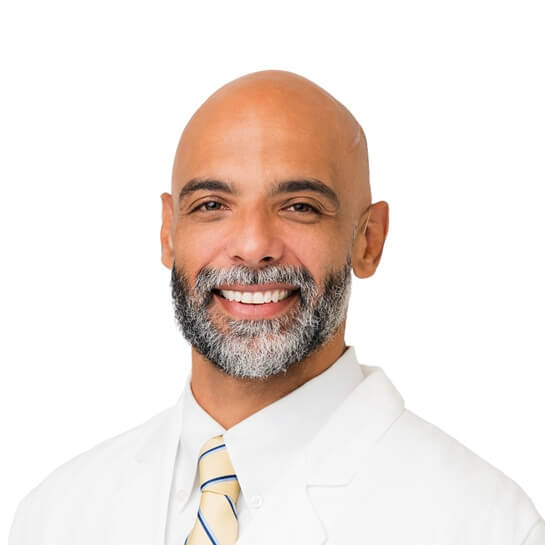Breast Cancer Surgery
Breast surgeons in Nashville

Dr. John Boskind
General Surgeon
MT. JULIET

Dr. Gretchen Edwards
General & Surgical Oncology
DOWNTOWN

Dr. Alex Fruin
General Surgeon
MT. JULIET

Dr. Mark Hinson
General Surgeon
COLUMBIA

Dr. Willie Melvin
General Surgeon
SMYRNA

Dr. Chad Moss
General Surgeon
COLUMBIA

Dr. Joshua Taylor
General
SMYRNA

Dr. Tyson Thomas
General Surgeon
SAINT THOMAS WEST

Dr. John Valentine
General Surgeon
HENDERSONVILLE
Breast Cancer Surgery
Discovering Hope: Your Guide to Breast Cancer Surgery and Breast Reconstruction in Nashville.
The Surgical Clinic offers a group of board certified general and breast surgeons who specialize in surgical oncology.
What is breast cancer surgery?
Breast cancer is a prevalent and challenging disease, affecting approximately 200,000 people each year. While it can be a daunting diagnosis, it’s crucial to remember that there are multiple treatment options available. Among these options, surgery stands as the primary and often life-saving choice. For those seeking breast cancer surgery and considering breast reconstruction, our Nashville team is here to provide you with the knowledge and support you need to make the best personal decisions for your health and well-being.
Breast Cancer Surgery Types
Breast cancer surgery aims to remove cancerous tissue from the breast. There are several types of surgical procedures used in the treatment of breast cancer. Here are some of the common ones:
- Lumpectomy (Breast-conserving surgery)
- Mastectomy
- Sentinel lymph node biopsy
- Axillary lymph node dissection
- Reconstructive surgery
Lumpectomy (Breast-conserving surgery) → In a lumpectomy, the surgeon removes only the tumor and a small margin of surrounding normal tissue. This allows the patient to keep most of their breast intact.
Lumpectomy is often followed by radiation therapy to destroy any remaining cancer cells and reduce the risk of recurrence.
Mastectomy → Mastectomy involves the removal of the entire breast. There are different types of mastectomy, including:
Total mastectomy: Removal of the entire breast tissue, but the nipple and areola are preserved.
Modified radical mastectomy: Removal of the entire breast tissue along with the nipple and areola, as well as some of the underarm lymph nodes.
Radical mastectomy: This is rarely performed now. It involves the removal of the breast, nipple, areola, and the underlying chest muscles. It’s typically reserved for cases where the cancer has spread extensively into the chest muscles.
Prophylactic Mastectomy → Prophylactic mastectomy is a preventive surgical procedure aimed at reducing the risk of developing breast cancer. This elective surgery involves removing one or both breasts to significantly lower the chance of breast cancer. You may consider a prophylactic mastectomy if you have a genetic predisposition or family history of breast cancer.
Skin-Saving Mastectomy → In certain instances, techniques are employed to preserve as much natural breast skin as possible while removing breast tissue.
Nipple-Saving Mastectomy → For select patients, it is feasible to preserve the nipple and areola during the mastectomy, contributing to a more natural post-surgical appearance.
Sentinel lymph node biopsy → During breast cancer surgery, nearby lymph nodes are often checked to see if cancer has spread beyond the breast. Sentinel lymph node biopsy involves the removal and examination of the lymph nodes most likely to contain cancer cells.
If cancer is found in these nodes, further lymph node surgery may be necessary to remove more nodes.
Axillary lymph node dissection → In cases where cancer has spread to the lymph nodes, an axillary lymph node dissection may be performed. This involves the removal of multiple lymph nodes from the armpit (axilla).
This procedure can sometimes cause side effects such as lymphedema, which is swelling in the arm due to fluid buildup.
Reconstructive surgery → After mastectomy, some women may choose to undergo breast reconstruction to restore the shape and appearance of the breast. This can be done using implants or by using tissue from other parts of the body.
The choice of surgery depends on various factors including the size and location of the tumor, the stage of cancer, the patient’s overall health, and their personal preferences. It’s important for patients to discuss the options thoroughly with their healthcare team to make an informed decision about their treatment plan.
Breast Surgeons
More about breasts
Breast Surgery
- Lumpectomy
- Mastectomy
- Nipple Sparing Mastectomy
- Skin Sparing Mastectomy
- Breast Reconstruction with Implants
- Breast Reconstruction with Flap
- Mastectomy with Reconstruction
Cancerous Breast Conditions Surgically Treated
There are a wide range of different types of breast cancers. Here are some that can be treated surgically:
Angiosarcoma → A rare form of cancer that begins in the blood vessels.
Ductal Carcinoma In Situ (DCIS) → A non-invasive cancer where abnormal cells are found in the lining of a breast duct.
Inflammatory Breast Cancer → A rare but aggressive type of breast cancer where cancer cells block lymph vessels in the skin of the breast.
Invasive Lobular Carcinoma (ILC) and Invasive Ductal Carcinoma (IDC) →These are the most common types of invasive cancers, spreading beyond the ducts or lobules into nearby breast tissue.
Metastatic Tumors → These are tumors that have spread beyond the breast to other parts of the body and may require surgical intervention as part of a broader treatment plan.
Paget’s Disease of the Breast → This condition begins in the ducts and spreads to the nipple and surrounding areas, often requiring surgical treatment.
Phyllodes Tumor → A less common condition that may be benign or malignant, involving tumors that develop in the connective tissue of the breast.
Rare Cancerous Tumors → There are various uncommon cancerous tumors that may also require surgical management.
YOUR BREAST CANCER JOURNEY AT THE SURGICAL CLINIC IN NASHVILLE, TENNESSEE
The journey begins with the vital step of diagnosing breast cancer. This typically involves various diagnostic procedures, including biopsies. A biopsy is a surgical procedure designed to extract small tissue samples from the specific areas of the breast or lymphatic system where suspicious abnormalities have been detected, often through mammograms. These tissue samples are then meticulously analyzed in a laboratory to determine their nature and characteristics.
When you arrive at our Nashville clinic, you may discuss genetic testing with your healthcare team. This testing can provide valuable insights into whether you possess genetic markers associated with an increased risk of breast cancer. Understanding your genetic makeup can influence treatment decisions and long-term health planning. Collectively, these diagnostic measures empower you, your doctors, and their dedicated teams to craft a tailored plan for breast cancer treatment and support.
What Type of Surgery Does The Surgical Clinic Offer for Breast Cancer?
Your approach to surgery will depend on several factors, including the stage of your cancer, the ‘personality’ of the cancer, and what you decide is best for your long-term peace of mind. At The Surgical Clinic, your physician and the entire surgical team are focused on supporting you with the most advanced approaches to Breast Cancer surgical techniques in the greater Nashville area.
At The Surgical Clinic in Tennessee, breast cancer specialists and surgeons work collaboratively with reconstruction and cosmetic surgeons to ensure that you understand your options so that, together, you make the choices that are right for you.
Comprehensive Care Approach
Multidisciplinary Team for Personalized Treatment
Our approach to breast cancer care at The Surgical Clinic involves a team of specialists who focus on treating you as a whole person, not just the disease. This team includes experts across various fields, such as breast surgeons, radiation oncologists, medical oncologists, radiologists, reconstructive experts, and genetic counselors, working together to ensure every aspect of your care is considered. Our board-certified surgeons at The Surgical Clinic are highly skilled and experienced in performing a wide range of breast surgeries, including breast augmentation, breast reduction, breast lift, breast reconstruction, and breast revision procedures. We are committed to delivering safe, effective results that meet your unique needs and goals.
Treatment Planning and Surgical Options
At The Surgical Clinic, we recognize that every patient is unique, with different aesthetic goals, body proportions, and medical histories. Your initial meeting with a Surgical Clinic breast surgeon is a crucial step after diagnosis. If surgery is the recommended treatment path, rest assured that we use the latest technologies and approaches in state-of-the-art facilities. Our aim is to remove cancerous tumors while preserving the breast’s form and appearance as much as possible. In many cases, breast-conserving surgery is an option, allowing us to maintain symmetry and size.
Emotional and Aesthetic Considerations
Understanding the emotional challenges of breast cancer surgery, we offer comprehensive guidance on surgical and reconstructive options from the outset. Our team takes the time to listen to your concerns, answer your questions, and address any anxieties you may have, so you can feel confident and empowered in your decision. Should you choose breast reconstruction, our collaboration with plastic surgeons at The Surgical Clinic ensures that your natural appearance can be restored using implants or your own tissue. Whether you’re seeking to enhance the size and shape of your breasts, improve symmetry, or reconstruct your breasts after mastectomy, we will work closely with you to develop a customized plan that achieves the results you desire.
By integrating these elements, we provide a holistic approach to breast cancer care that combines cutting-edge medical practices with compassionate support, ensuring you receive the best possible outcomes in your treatment journey in Nashville, TN.
BREAST CANCER SURGERY FAQs
HOW URGENT IS BREAST CANCER SURGERY?
It is important to note that the sooner the breast cancer surgery is performed, the better the chances of stopping the cancer from progressing. With that in mind, early detection and timely treatment are crucial to achieving a successful outcome. Waiting to undergo surgery can result in the cancer cells spreading to other parts of the body, making it more challenging to treat.
CAN YOU LIVE A NORMAL LIFE AFTER BREAST CANCER SURGERY?
It’s natural to wonder how your life will change after breast surgery. You may be concerned about how you’ll feel physically and emotionally, as well as whether you’ll be able to resume your normal activities.
The good news is that for most women, life after breast surgery is very similar to life before surgery. With the right treatment plan and support, you can continue to enjoy your favorite activities, work, and maintain your relationships.
WHAT IS BREAST RECONSTRUCTIVE SURGERY?
Breast reconstruction enhances or restores the look, shape, and feel of the breasts after a mastectomy or breast cancer treatment surgery. Reconstructive surgery can happen the same day as a mastectomy or at a later date. Often, breast reconstruction helps women return to normalcy after breast cancer. Therefore, it can be an emotional and sensitive process that can feel overwhelming at times.
There are several types of breast reconstruction. Sometimes tissue is taken from your abdomen, back, or buttocks to create a breast; sometimes, an implant filled with saline or silicone gel may be used. There are procedures that will combine your body tissue with implants. Your reconstructive surgery will depend on your body, your lifestyle, and your personal preferences.
WHAT IS IMPLANT-BASED BREAST RECONSTRUCTION?
Once the breast cancer is removed, patients may opt to have breast implants to replace the lost breast tissue. Breast implants restore shape and volume to the chest, and there are several options of implants to choose from. The surgeon will place the implant either over or under your chest muscle and cover it with your original breast skin or use a skin graft.
While breast implants are a fairly popular choice, the procedure can also be done with a tissue reconstruction, where the surgeon uses both implants and a flap to reconstruct the breast.
WHAT IS TISSUE-BASED BREAST RECONSTRUCTION?
Tissue-based breast reconstruction is often referred to as a ‘flap’ reconstruction. This is when the surgeon uses tissue from another area of the patient to reconstruct the breast. The surgeon will take skin, fat, and muscle from your belly or buttocks, which resemble breast tissue, to reconstruct the breast. Combining tissue-based reconstruction and implants produces a more realistic result.
HOW LONG DOES IT TAKE TO RECOVER FROM BREAST RECONSTRUCTION SURGERY?
Recovery in the hospital typically lasts betweenlbetweenasts about 2 and -8 hours. Following breast reconstruction surgery, patients will require plenty of rest, limited movement, and bandages that help minimize movement of the breast area. Pain medication will be used as needed. A special surgical bra may be required for several weeks once the bandages are removed.
About one to two weeks after your surgery, your doctor will schedule a follow-up appointment to check in on your healing progress. They will evaluate your condition, inform you about the test results, such as negative margins, and outline a plan for your next steps in recovery. However, if you experience unexpected or extreme symptoms, contact your doctor to examine possible surgery complications.
What Should Patients Know About Preparing for Surgery?
Once you have met with a TSC surgeon and undergone the appropriate testing, you will need to begin preparing for your upcoming surgery. Preparing for surgery involves more than just marking the date on your calendar. It’s about understanding every step you need to take before the procedure to ensure you’re ready both physically and mentally. Whether you are a new patient or have had surgeries before, here’s what you need to know:
Get Informed
- Consult Your Surgeon: Schedule a pre-operative consultation to discuss the details of the procedure. This is the time to ask any questions you may have about the surgery, recovery time, and potential risks.
- Understand Pre-operative Instructions: Adhere to any special instructions regarding diet or medication you may need to follow in the days leading up to your surgery. This might include fasting or adjusting your current medications.
Organize Your Health Information
- Medical History: Ensure your medical team has an up-to-date record of your medical history, including allergies, current medications, and prior surgeries.
- Insurance Details: Verify your insurance coverage and what it entails for the procedure. Make sure any authorizations have been obtained.
Physical Preparation
- Health Check: Complete all necessary medical tests as advised by your healthcare provider, which may include blood work or imaging studies.
- Lifestyle Adjustments: Incorporate healthier habits such as stopping smoking, reducing alcohol consumption, and maintaining a nutritious diet to enhance recovery.
Practical Arrangements
- Transportation: Arrange for someone to drive you to and from the hospital, as you won’t be able to drive immediately after the procedure.
- Post-Op Care: Plan for your post-surgery care. This includes stocking up on necessary supplies, meals, and arranging for assistance during your recovery period if needed.
Mental and Emotional Readiness
- Stress Management: Practice stress-reduction techniques such as meditation or deep-breathing exercises to keep anxiety at bay.
- Support System: Communicate with friends and family about your surgery so they can offer support and encouragement.
Your Team and Treatment Plan at The Surgical Clinic
Following a breast cancer diagnosis, you are not alone in your journey. A dedicated team of oncologists, breast cancer specialists, and healthcare professionals will collaborate to create a comprehensive treatment plan tailored to your specific needs. Typically, surgery represents the initial phase of your battle against breast cancer.
Our Breast Surgeons in Nashville, TN, are committed to providing compassionate and expert care to guide you through this challenging period. With a wealth of experience and expertise, our surgeons will work closely with you to determine the most suitable surgical approach, ensuring the best possible outcome for your unique circumstances.
Breast cancer is a formidable adversary, but with the right team and treatment plan, you can face it with confidence. By prioritizing early detection, exploring your options, and accessing expert care, you can take a significant step toward a brighter and healthier future.
If you have questions or are ready to discuss your breast cancer diagnosis and potential surgical options, please reach out to our dedicated team today. Together, we can embark on your path to healing and hope.
Watch Breast Cancer Diagnosis and Treatment
Watch Patient Testimonial
Considering Breast Surgery in Nashville? Find Expert Care at The Surgical Clinic
Are you considering breast surgery to enhance your appearance, restore symmetry, or address medical concerns? At The Surgical Clinic, we understand that making the decision to undergo breast surgery is deeply personal, and we’re here to provide expert guidance and compassionate care every step of the way.
Supporting Services for Breast Cancer Treatment and Recovery
Breast cancer treatment and recovery involve a multi-faceted approach that extends beyond traditional medical treatments. Here’s a closer look at the comprehensive services that play a crucial role in both treatment and rehabilitation:
Diagnostic and Treatment Services
- Biopsy Procedures: Essential for diagnosing the presence and type of breast cancer.
- Chemotherapy: Uses drugs to eliminate cancer cells, often used alongside other treatments.
- Radiation Therapy: Targets cancerous tissues with high-energy rays to destroy remaining cells after surgery.
Rehabilitation and Recovery
- Reconstruction Surgery: Post-mastectomy or lumpectomy, this surgery helps restore the breast’s appearance.
- Lymphedema Management: Focuses on reducing swelling and discomfort that can occur from lymph node removal or damage during treatment.
Personalized Medicine
- Targeted and Hormonal Therapies: These treatments are designed to specifically address cancer’s genetic or hormonal drivers, making the therapies more effective for certain cases.
Supportive and Preventative Services
- Breast Imaging: Vital for continuous monitoring of breast health through mammograms, MRIs, and ultrasounds.
- Primary Care: Provides ongoing health management and support to address general health concerns during and after treatment.
Comprehensive Care and Resources
- Pharmacy Services: Ensures access to necessary medications, including pain management and side-effect treatment.
Each of these services contributes significantly to a patient’s journey, providing not only medical treatment but also emotional and physical support to promote recovery and enhance quality of life.
Take the First Step Towards a More Confident You
If you’re considering breast surgery and would like to learn more about your options, we invite you to schedule a consultation with one of our experienced surgeons at The Surgical Clinic. During your consultation, we’ll take the time to discuss your goals, assess your anatomy, and develop a personalized treatment plan that aligns with your vision for your breasts. Contact us today to take the first step towards a more confident, beautiful you.
Learn More About Breast Cancer
Get Full Spectrum Care By Combining Breast Surgeons with Plastic Surgeons
If you or a loved one is facing breast cancer, in most cases, breast cancer surgery, such as a lumpectomy, mastectomy, or a preventive (prophylactic) mastectomy, is part of breast cancer treatment or breast cancer risk reduction. It's easy for patients to become...
Tummy Tucks and Breast Implants
Tummy Tuck with Breast Implants Tummy tuck (abdominoplasty) and breast implants (augmentation) are 2 cosmetic surgeries that may be done together. Having a tummy tuck can remove extra fat and skin from your belly. It can also tighten weaknesses in the belly...
Breast Reconstruction Surgery FAQ’s
If you need surgical removal of a breast tumor, you may be considering breast reconstruction as part of your cancer recovery journey. Many women are apprehensive about the idea of breast reconstruction and don’t know what to expect or what options they have. Breast...
Deciding to Get Breast Reconstruction After Breast Cancer
So you’ve been diagnosed with breast cancer and you’re currently working with a surgeon in Tennessee, to decide how to go about treatment. Depending on the stage and type of breast cancer you have, the treatments may also differ. Some types of breast cancer like...
Breast Cancer Awareness | Breast Cancer Surgery
Every year, October 1st marks the beginning of Breast Cancer Awareness Month. This month is important because breast cancer is the second most diagnosed cancer among women. At The Surgical Clinic, our expert surgeons specialize in helping patients with breast cancer....
World Cancer Day – Raising Awareness and Change
February 4, 2020, marked the 20th anniversary of World Cancer Day. This global movement was organized and started by six oncologists in 1999 before the start of the new Millennium. Together, they drafted the Charter of Paris Against Cancer, which outlines key issues...






